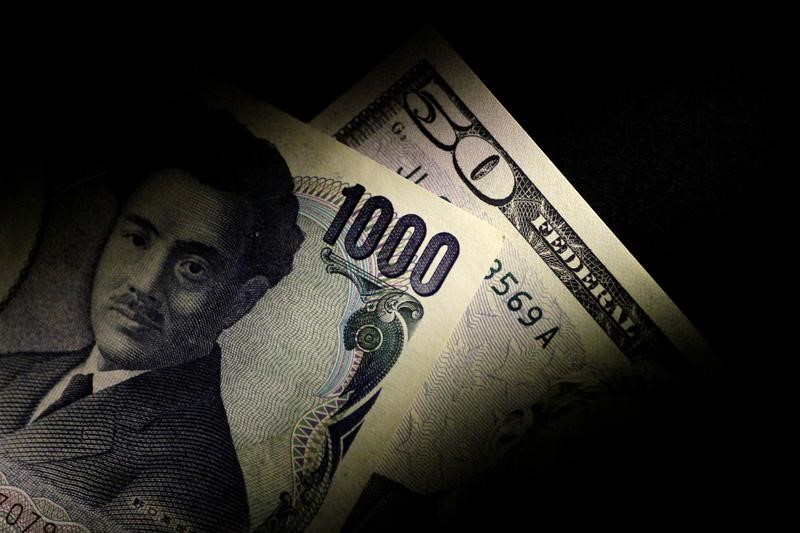By Peter Nurse
Investing.com - The U.S. dollar edged higher in early European trading Monday, absorbing suspected intervention by the Bank of Japan, while sterling pushed higher as former finance minister Rishi Sunak looked likely to become Britain's prime minister.
At 02:55 ET (06:55 GMT), the Dollar Index, which tracks the greenback against a basket of six other currencies, rose 0.1% to 112.123.
A lot of the overnight action in the foreign exchange markets centered around the USD/JPY pair.
The Financial Times reported the Bank of Japan may have sold at least $30 billion on Friday in an effort to support the yen, and the pair’s volatile movements early Monday action strongly suggested that the Japanese authorities had been in again.
USD/JPY fell from a high of 149.68 to 145.28 within minutes, in a move that suggested intervention, but has since climbed back up to 149.20, indicating that the Japanese authorities have a lot of work to do to stem the demand for the dollar versus the beleaguered yen.
“Japanese authorities are indeed in an uneasy position,” said analysts at ING, in a note. “We can easily see their interest in not drawing a line in the sand at 150.00 given the very elevated market volatility, but allowing the yen to break higher risks generating those sharp sell-offs in the currency that Tokyo wanted to curb in the first place.”
“Unless the Bank of Japan shifts to a less dovish stance (no hints of this happening so far), FX interventions remain the most viable option,” ING added.
Elsewhere, GBP/USD rose 0.4% to 1.1347, after former prime minister Boris Johnson pulled out of the running to replace the outgoing Liz Truss, with the Conservative Party due to announce its new leader, and thus PM, later Monday.
Johnson’s decision means that former finance minister Rishi Sunak, seen as the most fiscally prudent option, is likely to win power. His appointment would likely reduce the political uncertainty hanging over the pound, for a little time at least.
EUR/USD slipped 0.2% to 0.9843 ahead of Thursday’s ECB policy-setting meeting, which is expected to result in another 75 basis points hike as the central bank seeks to curb rampant inflation.
AUD/USD fell 0.9% to 0.6322, NZD/USD fell 0.3% to 0.5731, weighed by retreating risk sentiment, while USD/CNY rose 0.2% to 7.2553, as doubts grow about the strength of the Chinese economy recovery.
While delayed data on gross domestic product showed the Chinese economy grew 3.9% in the third quarter, beating forecasts of 3.5%, this was still below the official forecasts and retail sales disappointed with a minor rise of 2.5%.
